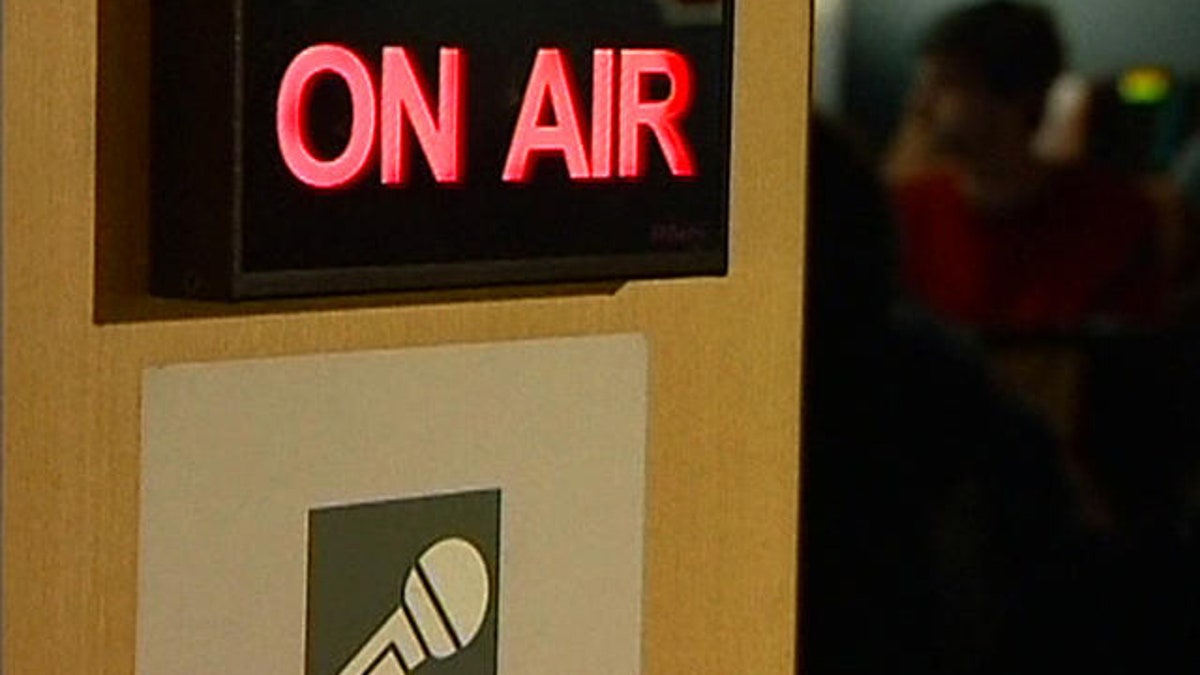
(AP)
Just as opponents of the so-called Fairness Doctrine are applauding efforts by the FCC to fully eliminate the regulation that once mandated political diversity on the airwaves, some are warning that the doctrine's proponents could pursue the same goals without the measure.
"There is no case for reinstituting the Fairness Doctrine. In fact, it would be a bad idea," Steven Waldman said Thursday, making recommendations to FCC commissioners after a two-year study. Waldman is a former journalist tapped by the FCC to spearhead the study, entitled "Information Needs of Communities."
When talk of resurrecting the Fairness Doctrine -- which would allow the government to regulate the content of radio and television outlets around the country -- surfaced in recent years, skeptics quickly sounded the alarm. Many feared the two-year study would result in support for bringing back the controversial policy.
The release of today's findings may come as some comfort to critics, but Commissioner Robert McDowell, a Republican, is urging caution.
"I think what happened today at the FCC is positive, but folks shouldn't be popping any champagne corks just yet,” he said. McDowell warns that traces of the Fairness Doctrine "are still on the books" and it will take some time to truly eliminate them. He says his goal is to get that done by the end of the year.
However, McDowell cautions that even if the Fairness Doctrine is permanently dismantled, "There are many different ways to try to accomplish the same goals."
One of the proposals that has sparked controversy is the concept of so-called "localism." Under an FCC proposal, local media outlets across the country would have to set up permanent advisory boards to keep tabs on what those local stations air. The FCC noted the importance of making sure communities have forums to debate issues relevant to residents, but skeptics worry that localism would simply be the Fairness Doctrine in different clothing.
Those who fear the localism angle got welcome news today as well. Waldman told the commissioners, "We are recommending that the FCC consider terminating the localism proceeding."
The comments about both the Fairness Doctrine and localism simply constitute staff recommendations at this point, and any concrete changes would require further action by commissioners.
Commissioner Michael J. Copps, a Democrat, is among those who will likely oppose Waldman’s recommendations. Today, he said the report was "not the bold response for which I hoped and dared to dream."
Copps was especially disappointed in the recommendation regarding localism, which he said is based on the principle that local communities "have available programming to reflect the needs, interests and cultures of the diverse people living there, and that those views have some opportunity for expression on the airwaves."
Copps had hoped the new study would support that ideal, and said he was instead stunned by the staff recommendation to shut down the localism proceeding.
It's clear there are still many internal battles to be fought at the FCC about the ultimate fate of today's recommendations.




